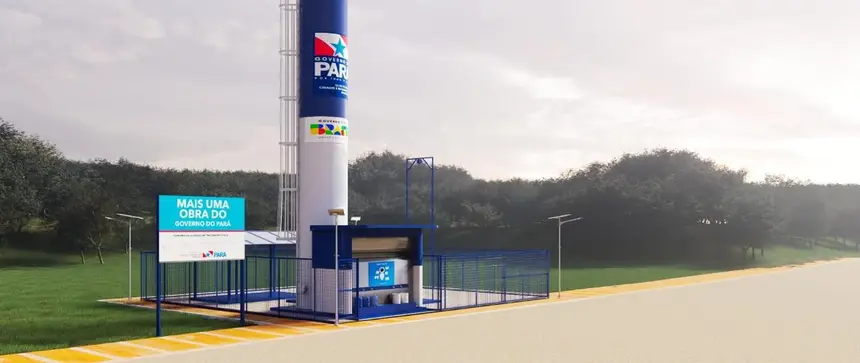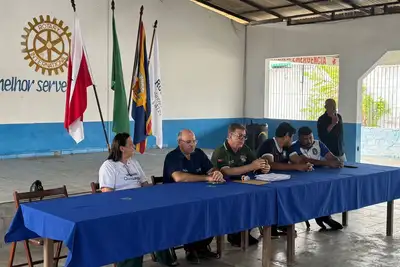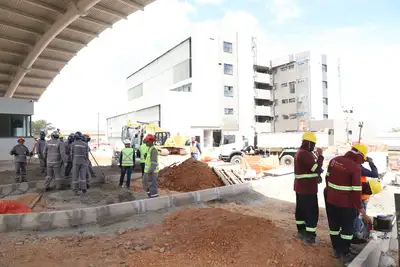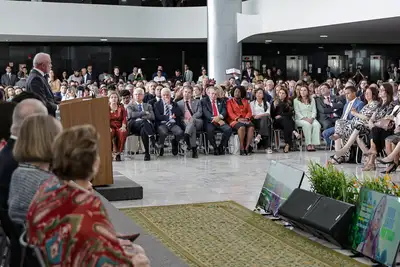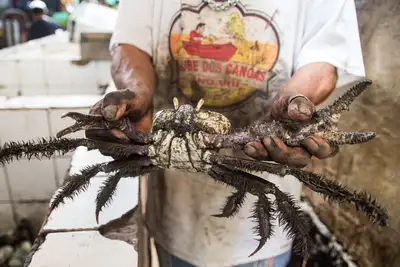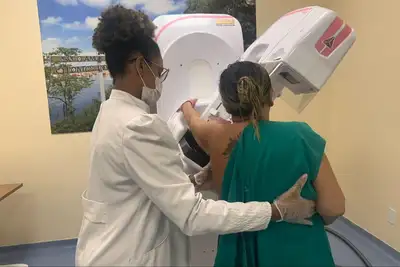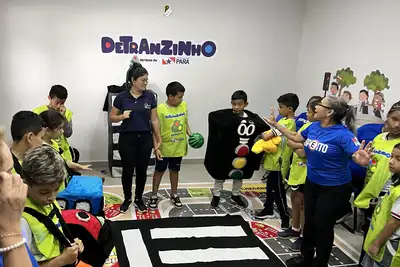Secir expands access to drinking water for communities in Baixo Amazonas and Tapajós
The State Secretariat for Cities and Regional Integration (Secir) expands the supply system in Alenquer, Almerim, Aveiro, and Itaituba
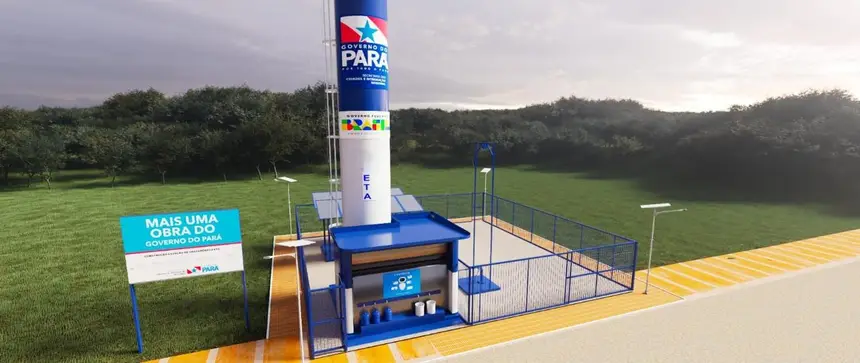
The State Secretariat for Cities and Regional Integration (Secir) expands access to drinking water in the interior of Pará with the implementation of new supply systems in the regions of Baixo Amazonas and Tapajós. With the capacity to serve up to 260 people in 13 communities, service orders have been signed for the municipalities of Alenquer, Almerim, Aveiro, and Itaituba.
The systems implemented are Compact Water Treatment Stations (ETA). The ETAs are easy to install and maintain, and have the capacity to treat up to 35 thousand liters of water per day – about 5 thousand liters per hour – improving the daily routine of residents, as detailed by civil engineer and Secir construction inspector, Luiz Frazão.
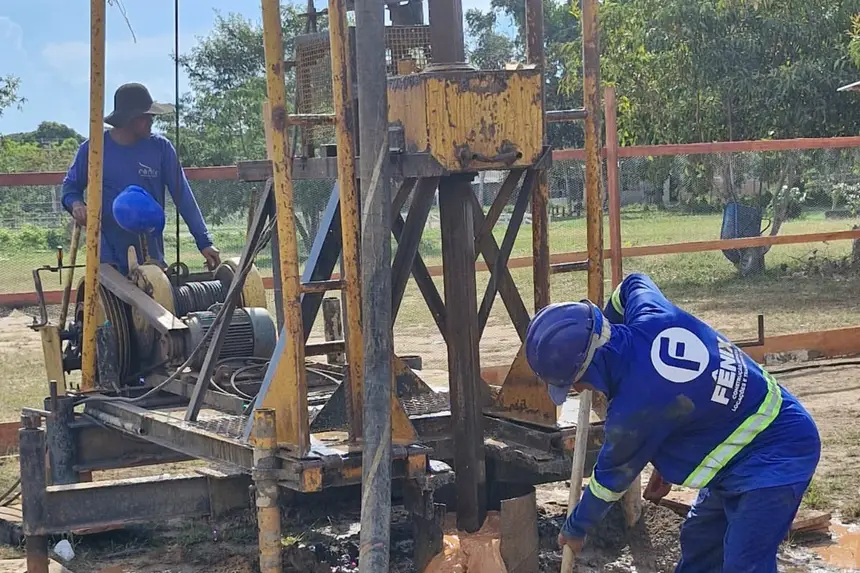
“These are communities that did not have access to treated water, which normally use water from rivers, streams, or shallow wells, averaging 10 meters deep, known as Amazonian wells – which increases the risks of contamination and health hazards,” emphasizes Luiz Frazão.
According to the engineer, the systems feature self-cleaning double reservoirs, in addition to a set of purifying filters, proportional automatic dosers for chemicals, and a series of other technologies that make them efficient for treating the main problems of water alteration and contamination such as: alkalinity, turbidity, odor, and bacteriological contamination.
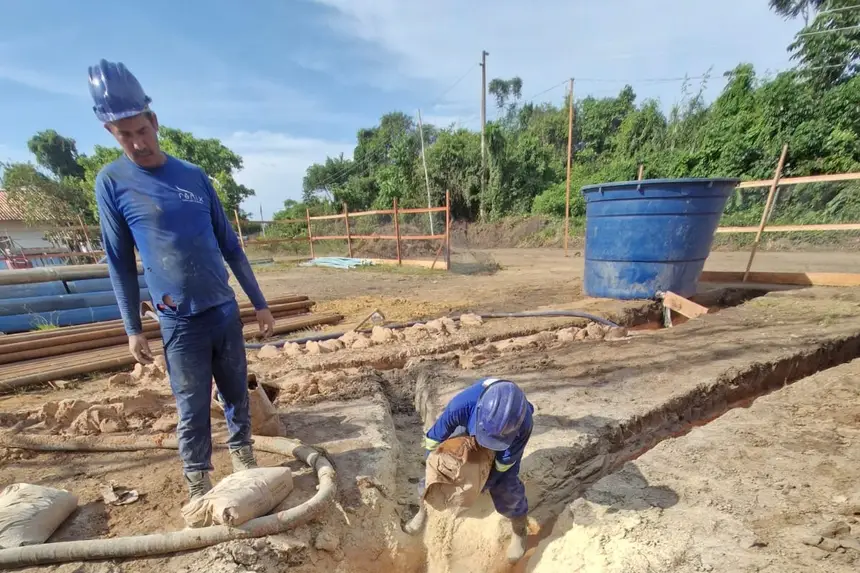
Dignity and sustainability
In Alenquer, the project will serve four communities: Mamia, Curicaca, Canaã, and Novo Horizonte. In Almerim, the service will reach Jaburu, Bacabal, Fé em Deus, and Peniel. In Itaituba, the communities served will be Campo Verde, Nova Califórnia, Barreiras, and São Luiz do Tapajós. Finally, the locality of Santa Cruz in Aveiro will also have access to treated water.
The supply systems follow the same standards of efficiency and sustainability already established in other projects by the State Government, through Secir, initiated in other municipalities, with an emphasis on the use of solar energy, ensuring the necessary autonomy and low environmental impact.
“Access to drinking water and basic sanitation is an essential, fundamental, and universal human right, indispensable for living with dignity, and we, at the Secretariat for Cities, always seek to reconcile social and environmental impact to ensure compliance with this basic human precept with sustainability – which is already an expertise practiced by the Government of Pará,” emphasizes the Secretary for Cities and Regional Integration, Fernanda Paes.
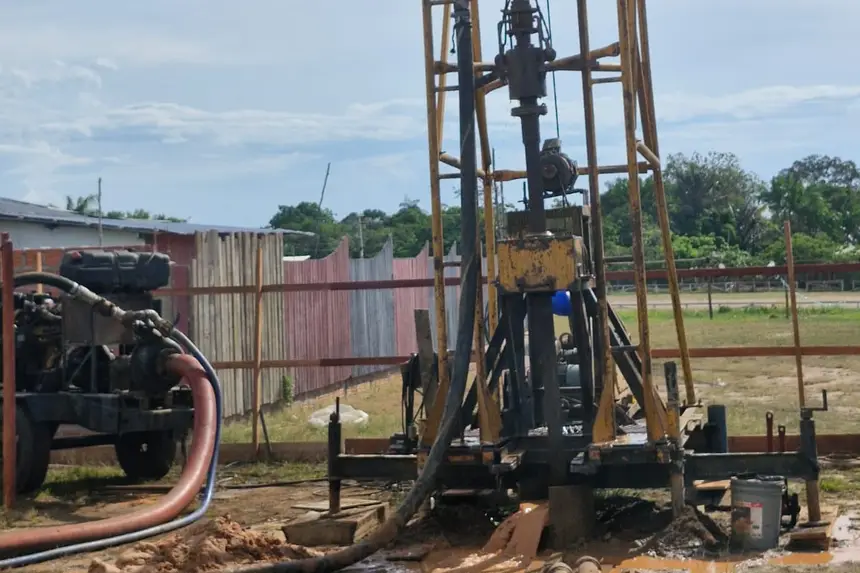
Short and long-term investment
The investment made for the implementation of the supply systems in Alenquer, Almerim, Aveiro, and Itaituba is approximately R$ 12.3 million. The works will yield results in the medium and long term. Immediately, the systems will serve 45 families (approximately 180 people), and by 2040, the project is expected to serve more than 60 families, ensuring a better quality of life for about 260 people over the next 15 years.
These works are part of a broad project that encompasses 17 municipalities in the interior of Pará. There are 53 localities in total, benefiting more than 3 thousand families. In addition to Alenquer, Almerim, Aveiro, and Itaituba, service orders have also been signed for Juruti, Terra Santa, and Óbidos, totaling seven municipalities with initiated works. The others are in the bidding process.
In Juruti, in the Vila Souza community, the project has progressed 30%, with the completion of the deep well drilling phase. “Everything is ready to continue. We are already dismantling the drilling tower,” celebrates the engineer and project inspector, Luiz Frazão.
The project is the result of an investment of R$ 49.7 million, from the New PAC (Growth Acceleration Program), signed by the Government of Pará and the Ministry of Cities. The project is also aligned with the new Legal Framework for Basic Sanitation (Law No. 14.026/20), which establishes goals for the universalization of water supply and sewage treatment services throughout the country, including the objective of ensuring that by 2033, 99% of the Brazilian population has access to drinking water.


